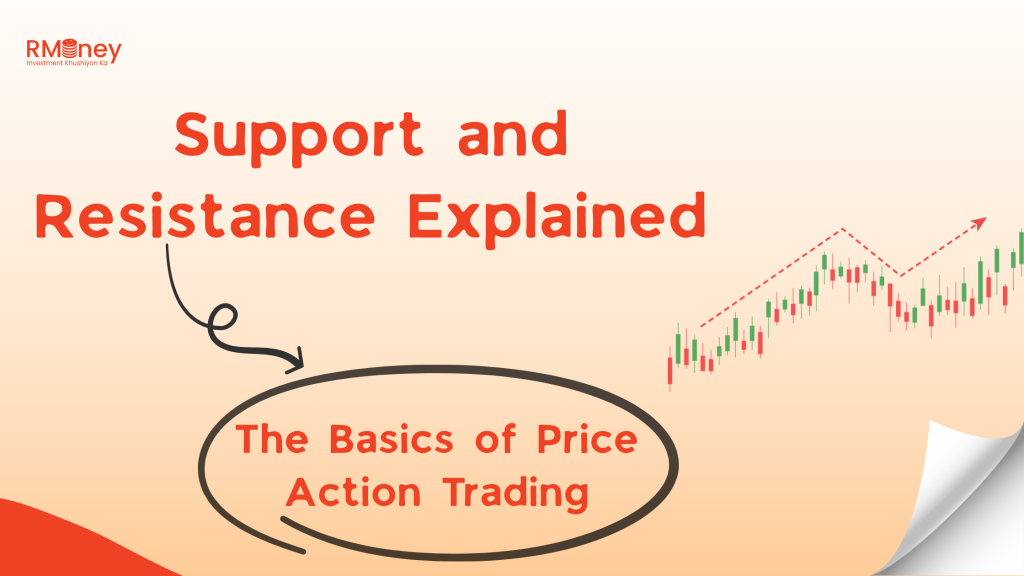Knowing about the stock market lead us to know about how and where to trade stocks of a company. The stock market is a marketplace to deal with the securities and ownership stakes in organization and companies. Here one can buy, sell, trade or issue shares of a company. The companies with public listing trade their shares in the stock market.
Thus, it is the collection of markets and exchanges. Here public does buy, selling, and issuance of shares of public companies on regular basis. Institutional formal exchanges or over-the-counter (OTC) marketplaces conducts such financial activities. These marketplaces follow rules and regulations as set out by the government of India. The SEBI is the apex body looking after rules and regulations of such marketplaces.
Before deep diving into the stock market investing, let us equip us with this. The advantages and disadvantages of the stock market.
Advantages of the stock market in India
You must understand the main advantages of stock market investing. This will keep you aware of the benefits you can reap from your money in the stock market.
1. You can make great money with stock market investing
The investors can make a good amount of money out of the investment. Even if done properly in a very shorter period of time. Investing in stocks is all about playing the cards in the right way. This is so as investors may start with no ground and move towards massive returns. However, equipping yourself with the tools and techniques of stock market investing will for sure help. But one should always remember that anything that gives higher return always comes with a risk.
2. Unmatched liquidity with your investment
The investors investing in stock market can easily access money. As these stock market investments are not like other investment such as real estates and CDs. The stock market gives you the privilege to sell, buy or trade as per your comfort within seconds. Further, in case of urgency, you can access your money instantly. You needn’t have to wait for your money for months or years. Instead, you can easily sell your stock and get access to your money immediately.
3. Flexibility with your funds at stock market investments
Investing in the stock market can help you in sustaining your entire financial portfolio. You can allocate funds for your retirement as well. Above all these investments remains tax-free until the investors use them.
Disadvantages of the stock market in India
Consciousness about the limitations of stock market investing is important too. This helps in limiting the riskiness with investments.
1. The stock market can be and remain volatile
In a fair sum game, there is always a winner and a loser. Same goes for the stock market investment. If the investor becomes a winner then there is a lot of money making. However, if the investor is a loser then they can see their money disappear in one go. If the investor is willing to invest in the stock market then he/she should never be risk-averse. He should always be in a stable financial position to withstand any kind of adverse swings in the stock market.
2. The stock market in India do crashes as well
Investors can expect daily volatility in the stock market. But large failures in the system are less common. Hence, when they occur then it might take years to recover. For this, you must look back to investments which show how market crashes within a few hours. The investors would need years to rebuild their portfolios in terms of recovery.
Characteristic features of the Indian stock market
The journey of stock market investment is neither straight nor smooth. There are lots of ups and down in the functioning of the stock market. Every situation in the stock market is unique. Yet they have some linking with the past. So knowing and keeping updates on the characteristic feature of the stock market is also a must.
1. Gains and losses in stock market investing
There is no limitation of making money when investing with the stock market. But at the same time, there is no guarantee to make money. As with savings accounts, or any other similar investment with a fixed rate of interest. If an investor sells the stocks at the higher price than paid to buy then he obviously gains. Whereas while selling at a lesser amount result in his loss. Either of them will have tax ramification.
2. Diversification of risk with the stock market
Investing in more than one company stock can always prove to be protective. This is so because just there is safety in numbers, there is security in diversity. If the investor tends to lose in one company stock then the investment in other company stock can have maximized gain. This would further increase overall return on the investment. One can always have the option to diversify through buying shares of different companies.
3. Various stock categories for your different needs
There are various categories and groups of stocks available in the Indian market. For instance, income stocks may offer large dividends but their prices do not normally fluctuate much. According to the New York Exchange learning centres, established companies may pay smaller dividends. But such stocks may have steady prices and are blue-chip stocks.
Growth stocks, on the other hand, belong to young companies. They pay little or no dividends. But such shares do offer greater chances for long-term price increases or decreases. Similarly, prices of cyclical stocks like those of home builders and automobiles manufacturers fluctuate with economic expansions and slowdowns. Conversely, defensive stocks such as foods and beverages manufacturers maintain their values during the recession.
Likewise, stock exchanges in India do have their own classifications of stocks. Learn stock classification before entering market is a good blog article to learn about such stock classifications.
4. Indicators for the performance of the stock market
There are many ways to measures the stock performance. You can compare the number of shares traded, closing prices, the change from their previous prices to understand the performance. Also, you can see the 52-weeks highs and lows for more rudimentary measures of stocks’ performance.
Furthermore, you can use financials of the company to measure the performances. For instance, the price-to-earnings ratio is a standard. The investors might buy the shares if they feel that the ratio is low and expect the price to rise. Similarly, they might sell if they expect the price to soon drop because they consider the ratio to be too high.
5. Bulls and Bears, Booms and Busts
Bears expect the stock market to drop while Bull’s bets that it will surely rise. Likely, when the prices generally decline over a lengthy period of time, it is a bear market. Contrary, if the stock market rise sustains then it is bull markets. The investors might buy or sell stock based upon whether they expect the market to rise or fall.
Boom and bust mean easy to come and easy go. Investors occasionally push prices of hot stocks or industries or even the market as a whole, to unsustainable highs.
Indian stock exchange – a brief introduction
A stock exchange is one of the important components of the Capital market in India. The stock exchange is an organized market for the purchase and sale of industrial and financial security. It is considered to be as a suitable place where trading in securities is conducted in a systematic manner. I.e., it all goes according to certain rules and regulations.
The stock exchange is seen usually performing different functions and offering useful services to investors and borrowing companies.
It provides an appropriate and assured mechanism or policy for transactions for different securities. These securities include shares and debentures issued by public companies which are aptly listed at the stock exchange, and bonds and debentures issued by the government, public corporations and municipal and port trusted bodies.
Few important factors of Indian stock exchange
- Economic barometer – Stock exchange is the most dependable barometer to measure the economic condition of a country. All kinds of major changes in country and economy are reflected in the prices of shares.
- Pricing of securities – The Stock market helps to fix the price of securities on the basis of demand and supply factors. The valuation of securities useful for investors, government and creditors.
- Safety of transactions – After verification of the company, stock exchange authorities includes the name of the company in the trade list and then only any company can trade its securities, has to follow certain rules and regulations. Therefore, this ensures the investors, the safety of dealing through the stock exchange.
- Contributes to economic growth – As discussed earlier, in stock exchange there is an ongoing process of buying and selling of securities of various companies. The process of disinvestment and reinvestment helps the investors to invest in the most productive investment plan. This further leads to capital formation as well as economic growth.
- Providing scope of speculation – This is to ensure liquidity and demand of supply of securities the stock exchange permits healthy speculation of securities.
- Liquidity – The most important and main function of the stock exchange is to provide a ready market for sale and purchase of securities. Stock exchange market assures the investors that their investment can anytime be converted into cash whenever they want.
Stock indices in the Indian stock market
A stock market index is a statistical measure which shows changes taking place in the stock market. For the creation of Index, few similar types of stocks are chosen from those securities that are already listed on the exchange and grouped together. The further procedure is like firstly, the value of the stock market index is computed using values of underlying stocks. Any change taking place in the underlying stock prices impact the overall value of the index. Further, it is seen that if the price of most of the underlying securities rises, then the index will also rise and this process goes vice-versa.
Therefore, this way a stock index reflects overall market sentiment and direction of price movements of products in the financial, commodities or any other markets. Things you must know about indices before investing is a blog article detailing about market indices.
Some of the notable indices in India are as follows –
- Benchmark indices like NSE NIFTY and BSE Sensex
- Broad-based indices like Nifty50 and BSE 100
- Indices based on market capitalization like the BSE Smallcap and BSE Midcap
- Sectoral indices like Nifty FMCG Index and CNX IT
Derivatives in the Indian stock market
A derivative is a contract between two parties that derives its value or price from an underlying asset that both parties agree upon. The reason for the value derived from an underlying asset is just because derivatives have no direct value. it means their values are based on the expected future price of the underlying asset. You can get a detail discussion on basic derivatives market on the Introduction to derivative market blog article.
The most common underlying assets or instruments are stocks, bonds, commodities, currencies, market index, interest rates, etc. These instruments are commonly used for hedging and speculating purposes, that allows the risks associated with underlying assets’ price to carried out between the parties involved in the contract. The derivatives are created to mitigate a large number of risks in the value of underlying assets which changes every now and then.
Should you own derivative instruments in your investment portfolio? Read this blog article to get an insight into under what conditions derivative instruments is crucial for your financial portfolio.
Derivatives are further classified into:-
1. Futures contracts
Futures contracts are agreements to buy or sell an asset at a certain price at a future time. You can trade it in the over-the-counter market. There is no standard contract size or delivery arrangements. Futures contracts are standardized contracts and are traded on recognized and regulated stock exchanges. These contracts are standardized in terms of contract sizes, trading parameters, and settlement procedures, and the contractor lot size meaning number of shares or units per contract is fixed. The settlement of the contract is guaranteed by an exchange or a clearing corporation through the process of novation and hence there is no counterparty risk. Futures contracts are more flexible when closing of the contract prior to the maturity by squaring off the transaction in the market is done.
2. Option contracts
Options are the derivative instrument that provides the opportunity to buy or sell an underlying asset on the future date. It is a contract written by a seller. It conveys the buyers has right, but not an obligation to either sell (put option) or buy (call option) a particular asset at a specific price in future. In case of call options, the option buyer has the right to buy and in case of a put option, the option buyer has a right to sell the security at the agreed-upon price which is exercise price.
You must learn what are the future and option contracts in details before initiating investment. Further, clearly understand the difference between future and options contract beforehand.
Participants of derivatives market in India
There are many participants in the derivatives market in India. The prominent one is hedgers, speculators, margin traders and arbitrageurs. I am jotting down a brief introduction of these participants for your understanding here.
- Hedgers- They are risk-averse traders in stock markets. They aim at derivative markets to secure their investment portfolio against the market risk and price movements.
- Speculators- These are risk takers of the derivative market in order to earn profits.
- Margin Traders- A margin refers to the minimum amount that you need to deposit with the broker to participate in the derivative market. It reflects your losses and gains on a daily basis as per market movements.
- Arbitrageurs- They utilize the low- risk market imperfections to make profits. They simultaneously buy low priced securities in one market and sell them at a higher price in another market.
You must analyse your financial strength before considering a derivative instrument in your financial portfolio. You must understand with examples, strategies and risks of derivatives trading in India. Furthermore, you must learn properly all the crucial intricacies before entering Indian derivative market. It is among the riskiest instrument available at the hand of retail investors in India.
As a conclusion, the stock market is a great place for investment and to make money. But you just need to understand its functioning and working properly before entering this market. You must equip yourself with tools and techniques of investing and trading in this market. Else, if you enter blindfold, it will turn out to be a speculators den.

Stock Trading Now trade in ₹9 Per Order or ₹ 999 Per Month Plans.
Future & Options Access F&O contracts with advanced tools for hedging and speculation.
Currency Trading Trade in major currency pairs and manage forex exposure efficiently.
Commodity Trading Diversify Trading with MCX & NCDEX by Trading in Gold, Silver, Base Metals, Energy, and Agri Products.
Margin Trading Funding Boost your buying power with upto 5X, Buy now Pay Later
Algo Trading Back test, Paper Trade your logic & Automate your strategies with low-latency APIs.
Trading View Leverage Trading View charts and indicators integrated into your trading platform.
Advanced Options Trading Execute multi-leg option strategies with precision and insights.
Stock Lending & Borrowing Earn passive income by lending stocks securely through SLB.
Foreign Portfolio Investment Enable NRIs and FPIs to invest in Indian markets with ease and compliance.
IPO Invest in upcoming IPOs online with real-time tracking and instant allotment updates.
Direct Mutual Funds 0% Commissions by investing in more than +3500 Direct Mutual Fund Scheme.
Corporate FDRs Earn fixed returns with low-risk investments in high-rated corporate fixed deposits.
Stocks SIPs Build long-term wealth with systematic investment plans in top-performing stocks.
Bonds & NCDs Access secure, fixed-income investments through government and corporate bond offerings.
Depository Services Safely hold and manage your securities with seamless Demat and DP services with CDSL.
Journey Tracing our growth and milestones over time.
Mission & Vision Guided by purpose, driven by long-term vision.
Why RMoney Platform Smart, reliable platform for all investors' needs.
Management Experienced leadership driving strategic financial excellence.
Credentials Certified expertise with trusted industry recognition.
Press Release Latest company news, updates, and announcements.
Testimonials Real client stories sharing their success journeys.
7 Reasons to Invest Top benefits that make investing with us smart.
SEBI Registered Research Trusted insights backed by SEBI-compliant research.
Our Technology Advanced tools enabling efficient online trading.
Calculators Access a suite of smart tools to plan trades, margins, and returns effectively.
Margin Calculator Instantly check margin requirements for intraday and delivery trades.
MTF Calculator Calculate MTF funding cost upfront to ensure full transparency before placing a trade.
Brokerage Calculator Know your exact brokerage charges before placing any trade.
Market Place Explore curated investment products and trading tools in one convenient hub.
RMoney Gyan Enhance your market knowledge with expert blogs, videos, and tutorials.
Performance Tracker Track our research performance with full transparency using our performance tracker.
Feedback Share your suggestions or concerns to help us improve your experience.
Downloads Access important forms, software, and documents in one place.
Locate Us Find the nearest RMoney branch or service center quickly.
Escalation Matrix Resolve issues faster with our structured support escalation process.
Back Office Log in to view trade reports, ledger, and portfolio statements anytime.
Account Modification Update personal or bank details linked to your trading account.
Fund Transfer Transfer funds instantly online with quick limit updation to your trading account.
Bank Details View our registered bank account details for seamless transactions by NEFT, RTGS or IMPS.
How to Apply IPO Step-by-step guide to apply for IPOs using your trading account.
RMoney Quick Mobile App Trade on-the-go with our all-in-one mobile trading app.
RMoney Quick login Quickly access your trading account through the RMoney Quick web-based trading.
RMoney Rocket Web Version Experience powerful web-based trading with advanced tools for algo traders.
RMoney Rocket Mobile Version Trade anytime, anywhere with our feature-rich mobile trading platform.




















